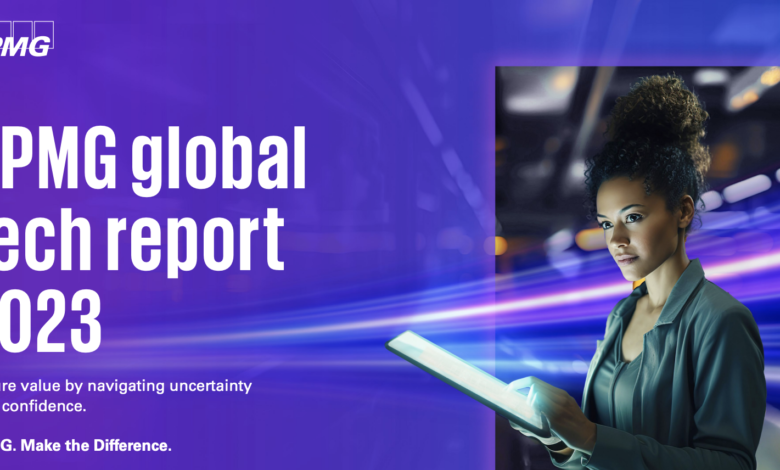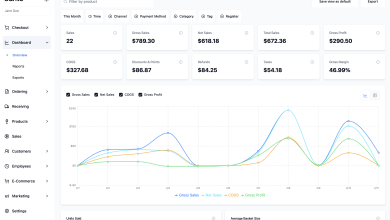
Highlights include:
– The appetite for leadership to embrace emerging tech has more than tripled from 10 percent to 38 percent in the last year.
– AI considered the most important technology for achieving short-term ambitions.
– 72 percent of digital leaders recorded improvements in employee productivity, a huge uplift attributed to digital transformation.
– Advancing ESG priorities remains the primary innovation goal for technology functions across the world.
– Customer experience and cyber continue to be a significant drivers for technology innovation and digital investment.
– Economic turbulence means 67 percent claim they are expected to deliver more with a smaller budget.
– Lack of coordination across technology functions cited as the main obstacle to transformation progress.
London Wednesday 6th September 2023: KPMG International today published its KPMG global tech report 2023, which explores the technology strategies employed by organizations across the globe as they embark on the next stage of their digital transformation journeys. It also examines the opportunity presented by emerging technology to drive value and gain a competitive edge during a sustained period of unprecedented market volatility.
According to the new report in which more than 2,100 technology executives were surveyed and a series of in-depth discussions conducted, digital transformation leaders committed to their innovation priorities, continue to realize value at pace.
The largest group of respondents see technology investment driving profit or performance improvements of more than 10 percent, up from last year’s most common rate of improvement of around 2.5 percent. Buy-in across leadership for the deployment of emerging tools and technologies has more than tripled with the top three areas of investment being artificial intelligence, data and analytics and Xaas.
Almost half of the respondents (48 percent) agree that advancing their ESG priorities will be a primary innovation goal for their technology functions over the next two years; this is consistent regionally with 53 percent in ASPAC, 46 percent in the Americas and 47 percent in EMA.
“The report reveals customer experience, ESG, and cybersecurity are considered key drivers for technology innovation, and the increasing focus on AI as the driving force behind digital transformation ambitions in the next few years. With a revolution of emerging technology unfolding
before us, organizations should ensure their digital innovation plans are intentionally tied to their strategic commercial goals”, said Bobby Soni, Global Technology Consulting Leader, KPMG International.
Among those leading businesses where investment in technology is driving confidence and profitability most quickly, AI and machine learning are even bigger priorities. More than two thirds (68 percent) say these technologies will be vital in helping them to achieve their short-term business goals, compared with 57 percent of the total sample.
The report shows that ‘security by design’ is becoming an embedded principle in technology implementation: 62 percent of businesses have discovered that managing risk in the early stages of projects, with security and control by design, significantly increases the success rates of transformation programs. And in some countries this figure is far higher: 74 percent in Brazil, 83 percent in China and 88 percent in India.
But it’s not all plain sailing, the biggest threat to many organizations digital transformation ambition is linked to poor collaboration across teams – often a result of negative work culture and poor communication. Nine in ten respondents think collaboration with the wider business would be stronger if their tech function was more diverse.
“The survey finds that although important technologies have matured and are delivering real value, management challenges continue, ranging from understanding the technology to understanding how to manage the costs and the risks associated with the technologies,” said Barry Brunsman, Global Leader, CIO Center of Excellence, KPMG International. “Perhaps most surprisingly of all, our research also uncovered that despite most organizations demonstrating a strong level of diligence in their transformation strategies, the fear of missing out was a contributing factor, with 45 percent of respondents reporting they are prioritizing AI and machine learning because they believe market leaders have already adopted this kind of technology.”
This year, 96 percent of the leaders (the top 15 percent of those surveyed) say their technology function can help the enterprise to confidently explore the potential of emerging technologies, compared with 81 percent of businesses overall. Two-thirds of these leaders have reached at least the implementation stage on projects connected to emerging technologies, XaaS, data and analytics and AI and automation, compared with less than half of the total respondent base.
With 72 percent of digital leaders recording improvements in employee productivity from digital transformation, compared with only 48 percent of the other businesses the potential benefits are huge. 71 percent say they have enhanced customer engagement, compared with 49 percent.
Today’s challenging times demand innovation tied to clear business outcomes, carefully monitored for bottom-line returns. Opportunities exist for agile businesses that are able to adjust at speed and respond to internal drivers as well as the changing environment around them to optimize outcomes and achieve a competitive advantage.
For more information, visit our website: kpmg.com/techreport2023
About the research:
The study is based on a survey of 2100 executives from 16 countries:
• 29 percent from Asia Pacific
• 38 percent from Europe, Middle East and Africa (EMEA)
• 33 percent from the Americas
There are representatives from across nine industries including: energy, education, financial services, government, healthcare, industrial manufacturing, life sciences, tech, retail and consumer packaged goods.




